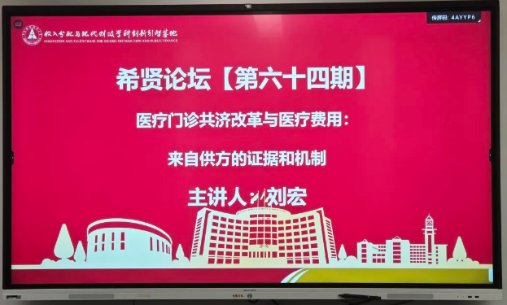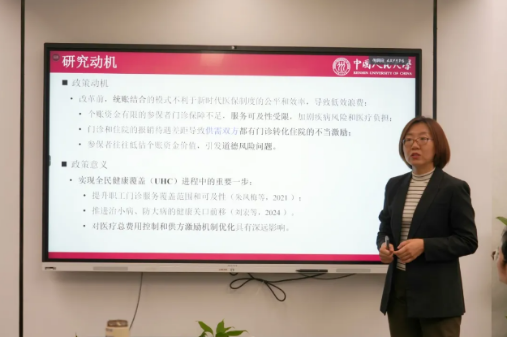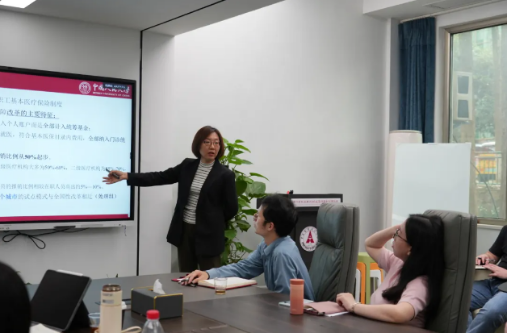(Correspondent John Xie) On November 15, 2024, the 64th Xi Xian Forum was successfully held in Conference Room 119 of the Wenqin Building. This event was co-hosted by the Center for International Cooperation and Disciplinary Innovation of Income Distribution and Public Finance (111 Center), along with the School of Public Finance and Taxation, both at Zhongnan University of Economics and Law (ZUEL). Professor Liu Hong from School of Labor and Human Resources at Renmin University of China served as the keynote speaker for the 64th Xi Xian Forum. She delivered a speech titled "Mutual-Aid Mechanism for Covering Outpatient Bills under the Basic Medical Insurance System and Medical Expenses: Evidence and Mechanism from Suppliers." This academic forum was presided over by Ma Yuanyuan, a researcher at the 111 Center. Over 20 attendees participated in the forum, including Professor Rong Zhao from the Wenlan School of Business, Ouyang Jie from the School of Public Finance and Taxation, as well as Yuan Lulu and Liu Ling from the School of Economics. Researchers Zou Wei, Wan Qian, and Lin Jiada, also from the 111 Center, were present as well.

China's mutual-aid mechanism for covering outpatient bills, introduced in 2021 as a key structural reform of the medical insurance system, is expected to reshape the incentive mechanisms for hospital suppliers in the medium to long term. Professor Liu Hong, from a macro perspective of universal health coverage, shared her research findings on the impact of medical insurance reform on cost control and supplier incentives with the teachers and students present. Finally, through empirical analysis, she concluded that while the mutual-aid mechanism does not lead to significant changes in total medical expenses in the short term, a decrease of approximately 5% occurs in the medium to long term. This is attributed to the increase in outpatient visits, the decrease in both the number of inpatients and per capita hospitalization expenses, and the rise in the proportion of service costs that reflect the labor value of medical staff, with a more obvious impact on secondary hospitals. An analysis of supply-side mechanism shows that the mutual-aid mechanism for covering outpatient bills not only enhances the outpatient service capacity of hospitals but also improves the inpatient service efficiency of public hospitals in the medium to long term. This mechanism helps to curtail the tendency for bed and scale expansion in public hospitals.

Professor Liu Hong's insightful speech prompted in-depth reflection among students and teachers on the impact of medical insurance reform on cost control and supplier incentives. In the discussion session, all participants actively exchanged views on how to deepen medical insurance reform and effectively control the excessive growth of total medical expenses.

